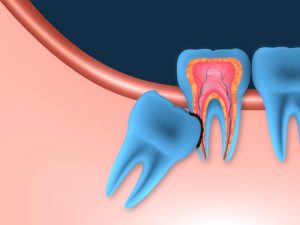 Wisdom teeth are a marvel of human evolution — until they are impacted or do not fit properly into your mouth. In these cases, they can be quite a headache, sometimes even literally.
Wisdom teeth are a marvel of human evolution — until they are impacted or do not fit properly into your mouth. In these cases, they can be quite a headache, sometimes even literally.
Fortunately, wisdom tooth removal is a fairly simple procedure that has a brief recovery period and requires very little discomfort. Still, you likely do not want to undergo a removal procedure if your wisdom teeth are not currently causing discomfort.
However, even if you do not believe your wisdom teeth are causing you any issues, there are several reasons why you may want to consider wisdom tooth removal.
What Are Wisdom Teeth?
Wisdom teeth are the late bloomers of your permanent teeth. While your other permanent teeth generally emerge by the age of 6 or 7, your wisdom teeth will not come in until somewhere between the ages of 17 and 25. These molars will emerge in the very backs of each row of teeth, sometimes without any issues, and sometimes with many.








